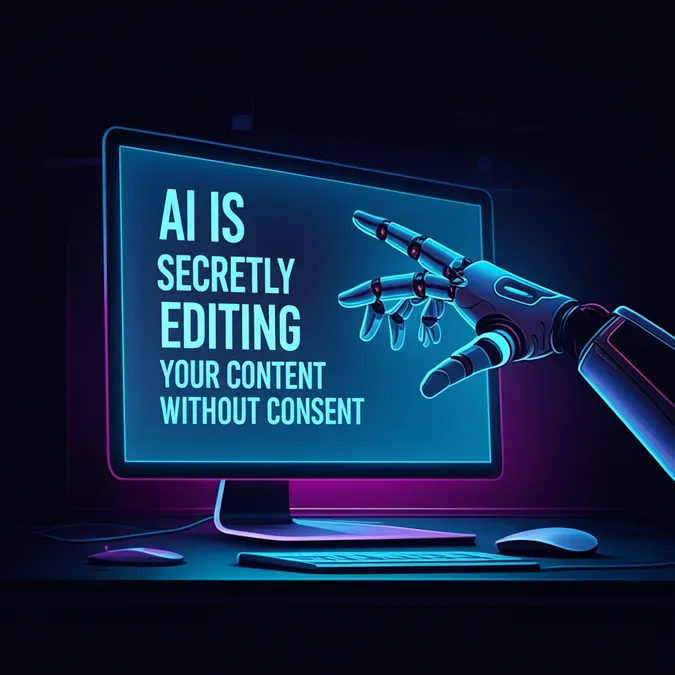Developer Offer
Try ImaginePro API with 50 Free Credits
Build and ship AI-powered visuals with Midjourney, Flux, and more — free credits refresh every month.
How Generative AI Saved Google In Its Antitrust Battle
 Google CEO Sundar Pichai gestures to the crowd during Google's annual I/O developers conference. Photo: David Paul Morris | Bloomberg | Getty Images
Google CEO Sundar Pichai gestures to the crowd during Google's annual I/O developers conference. Photo: David Paul Morris | Bloomberg | Getty Images
An Unlikely Blessing in Disguise
When OpenAI unleashed ChatGPT in 2022, the tech industry was turned on its head. In response, Google scrambled to launch a competitor, a move that its own employees reportedly described as "rushed" and "botched." However, these initial fumbles in the AI race may have inadvertently become Google's saving grace in a much larger battle.
The Antitrust Verdict: A Win Despite the Loss
On Tuesday, a federal judge ruled on the penalties for a landmark antitrust case the U.S. Department of Justice filed against Google in 2020. Despite losing the case last year, Google dodged the most severe consequences proposed by the government. The judge denied the DOJ's request to force Google to divest its Chrome browser.
The most significant punishments imposed include a ban on exclusive contracts that involve payments or licensing, and a requirement for Google to share some of its search data. Following the news, Google's shares rose in extended trading.
How Generative AI Reshaped the Legal Landscape
Google's partial victory can be largely attributed to the explosion of the generative AI industry. U.S. District Judge Amit Mehta explicitly stated in his filing that "the emergence of GenAI changed the course of this case." While acknowledging Google's current dominance in search, he pointed to artificial intelligence as a potential game-changer.
Judge Mehta dedicated nearly 30 pages of his ruling to the AI market, describing it as "highly competitive" with "numerous new market entrants" and significant capital investment. He concluded that the competitive dynamics of AI are entirely different from the search market that Google monopolizes. Crucially, the ruling aims to prevent Google from leveraging its search dominance to stifle competition in the burgeoning AI space. "Google cannot use the same anticompetitive playbook for its GenAI products that it used for Search," Mehta wrote.
Industry Reactions and Future Implications
Both Google and the Justice Department acknowledged the pivotal role of AI in their official statements. Lee-Anne Mulholland, Google's VP of regulatory affairs, noted that the decision "recognizes how much the industry has changed through the advent of AI." She did, however, express "concerns" about how the data-sharing mandate would impact user privacy.
Conversely, the DOJ framed the decision as a victory that will "pry open" the search market. The department emphasized that the ruling prevents Google from applying its monopolistic tactics to the AI sector, ensuring that GenAI technologies and companies can compete fairly.
The New Titans of Tech: AI Startups in the Spotlight
The court filing reads like a who's who of the current AI boom. OpenAI was mentioned 30 times, and its product, ChatGPT, was named 28 times. Other prominent startups like Anthropic and Perplexity, which didn't even exist when the case was filed, were also frequently cited. The document notes that tens of millions of people now use chatbots like ChatGPT, Perplexity, and Claude for information gathering.
The ruling also recognized other key players in the space, including Elon Musk's xAI, DuckDuckGo's Duck.ai chat service, Meta, and China's DeepSeek. This focus underscores that the legal proceedings evolved to be as much about safeguarding future competition in AI as they were about remedying past anticompetitive behavior in search.
WATCH: Federal judge rules Google does not have to divest Chrome
Compare Plans & Pricing
Find the plan that matches your workload and unlock full access to ImaginePro.
| Plan | Price | Highlights |
|---|---|---|
| Standard | $8 / month |
|
| Premium | $20 / month |
|
Need custom terms? Talk to us to tailor credits, rate limits, or deployment options.
View All Pricing Details

